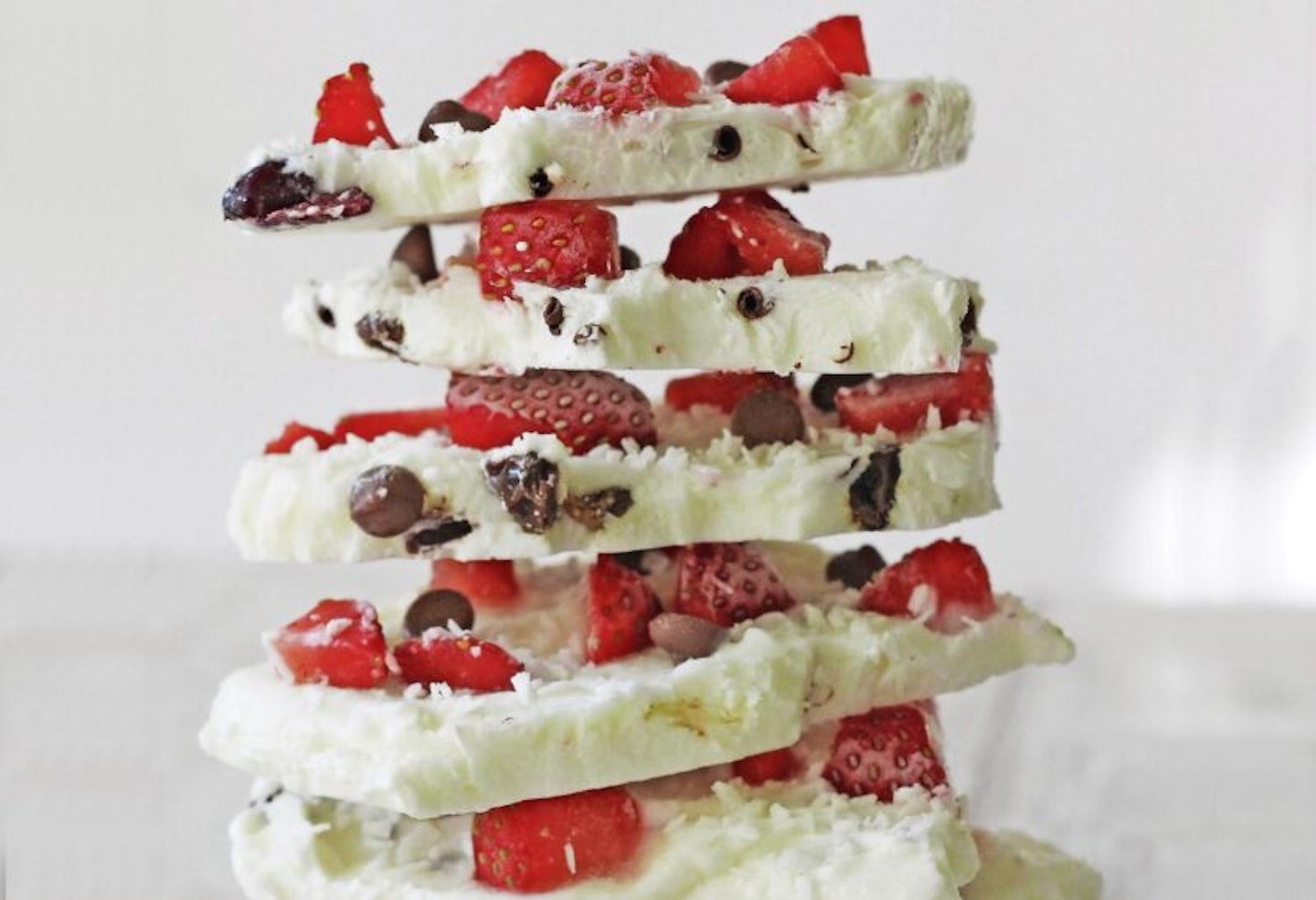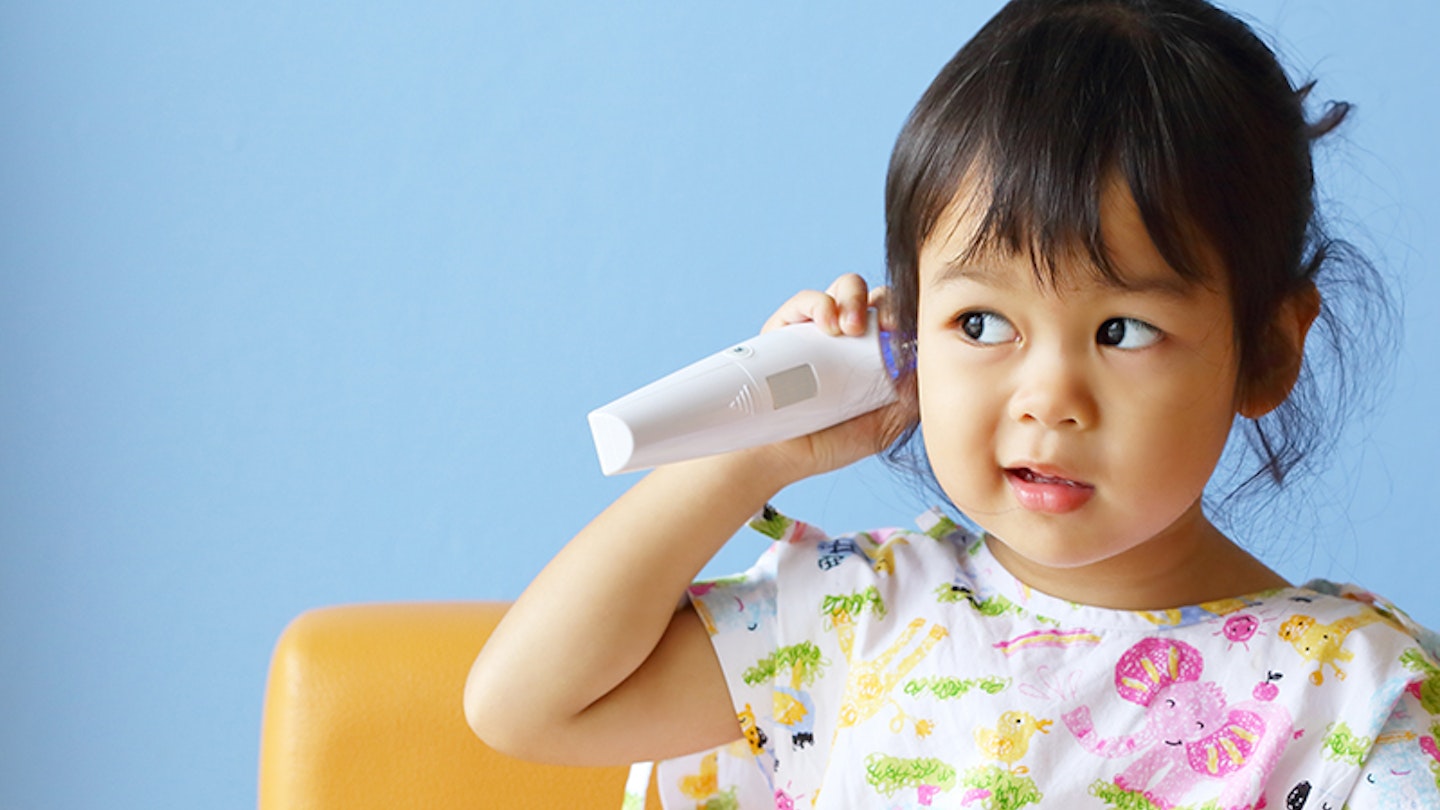While Autumn and Winter might signal pumpkin latte season and an excuse to cosy up on the sofa, they also come with a side helping of pesky germs. Back-to-school and a change in the weather can bring bugs and illnesses that hit little ones hardest. While boosting your baby's immune system is one part of the puzzle, it's highly likely that your tot will come down with something this winter. There are plenty of ways to stay healthy during the winter months but if you've got a sick infant, you'll want to look after them to help them to recover as quickly as possible.
Luckily, there are a few tried and tested ways of nursing poorly toddlers back to health, and keeping them in good health. We've spoken to the experts to get everything you need to know about how to care for a sick infant.
Listen to your toddler
This expert tip comes from the NHS, and should probably be the first point you think about if your toddler is poorly. Whether they have all the words they need to communicate or you have to read their non-verbal cues, your sick child is going to tell you what they need. If they want to snuggle up on the sofa and rest, that's probably the best place for them. Depending on how they're feeling, they might not want to eat much, so be led by them on this.
Practise good hygiene
While toddlers aren't renowned for their hygiene standards, now is the time to reinforce the message about washing hands. Make sure they wash their hands regularly, particularly if they have a snotty nose, and use hand sanitiser if they can't be tempted to the bathroom.
Create a soothing environment
Comfort and sleep should be a priority for sick infants, and this could mean a cosy sofa and calming storybooks like the best Yoto Player storycards which will help your tot to relax. A soothing, lavender sleep spray such as the Childs Farm Lavender and Moon Milk Sleep Mist could also help to create a calming environment that will encourage them to rest and drift off to sleep. If your sick child wants to sleep all day, let them - it's what their body needs to recover.
Use massage techniques
Crystal Miles from Connected Babies suggests using simple massage strokes if feeding and sleeping are a struggle due to congestion, coughs and colds. "These simple strokes have been shown to stimulate the respiratory and immune system, ease nasal congestion, reduce coughing, shift mucus off the chest, regulate temperature and help your toddler to relax!"
• Chest – place both hands at the centre of the chest, stroke out to the sides with flat palms and then follow the rib cage down and back up through the centre of the chest to the starting point.
• Face – place thumb pads on either side of the nose and stroke upwards towards the bridge. Change direction stroking down and diagonally along the cheekbones,
• Feet – a simple foot massage can be a great benefit as the feet have many pressure points that represent the respiratory system. Press with the pads of your thumbs on the sole of the foot, covering the whole foot.
• Hands – the hands also have many pressure points including for the sinuses and ears, open the up the palm by stroking it with your thumbs and then roll each finger between your index finger and thumb from the base to the tip of each little digit.
As Crystal explains, "regular massage boosts the circulatory and lymphatic systems, flushes toxins, moves healthy nutrients around the body, and increases the activity of white blood cells that help our body fight diseases. Traditionally in many countries around the world, baby massage is aimed at increasing overall circulation, strengthening muscles, joints and limbs and regulating the nervous system."

Keep them hydrated
While your toddler might lose their appetite when they're poorly, staying hydrated is important. The NHS suggests giving your child plenty to drink. "For the first day or so don't bother about food unless they want it. After that, start trying to tempt them with bits of food and "encouraging them to have nutritious drinks like milk." If they won't drink water, there are plenty of toddler-friendly drinks you can try to keep them hydrated.
Look after yourself
When you're on a plane you're advised to put on your own oxygen mask first, and looking after a poorly toddler is no different. Give yourself permission to slow down - you don't have to clean the house, that work call can probably wait, and if possible, ask for help. If your toddler needs you to cuddle up with them while they recover, take it as a chance to relax and rest yourself (you might even be able to sneak in a nap when they do!). Stock up on your own supplements to boost your immune system and give yourself the best chance of dodging the germs!
Keep the medicine cabinet stocked up
Making sure you have a first aid kit and medicine like baby paracetamol or ibuprofen on hand at all times will make it easier when your little one gets poorly. The last thing you'll want to do is head out to the shop if they need you at home. A baby thermometer is a must so you can track their temperature and medicines like paracetamol and ibuprofen that are age-appropriate can help relieve fever in infants.
Monitor their symptoms
It can be easy to lose track of when your toddler last took their medication, or when their symptoms started so keeping notes will help you if you need to speak to a doctor. Monitor their temperature to see if it goes down when they have paracetamol and track any changes in their mood, symptoms, behaviour or appetite.
Check their vaccination record
It might not be something to address while they're poorly, but keeping your toddler up to date with their vaccination schedule will help them to fend off the nastier bugs. Check the little red book you should have received when your child was born or speak to your GP practice to make sure they've had all their routine childhood vaccinations.
Stock up on vitamins
If your toddler is off their food, you might need to supplement their diet with the vitamins that will keep their nutrient levels up and boost their immune system, such as Novomins Vitamin C Gummies which are suitable from 3 years+. Dr Peter McQuillan, Co-Founder & Chief Scientific Officer at Novomins explains, "Our body's immune system is governed in two ways. We are born with 'innate immunity', and it’s our body's first line of defence against viruses and bugs. Second is our 'adaptive immune system' which builds a memory bank of viruses & bugs after they first invade the body, so that we can quickly fight them if and when they attack our body again. Whilst children are developing their adaptive immune system it’s important we support their immune systems." He recommends Vitamin C which is "a powerful antioxidant and whilst serving many roles in the body, it has a particular hand in supporting our immune system."
Focus on healthy foods
It's possible your toddler will be off their food while they're poorly so when they do want to eat, it's important to prioritise toddler-friendly superfoods that will boost their immune system and help their body to recover. If they have a sore throat or don't want to eat solid foods, you can sneak plenty of fruit and veg into a smoothie.

Soothe sore throats
If your toddler has a sore throat it might be tough to get them to eat and stay hydrated. Ice lollies can be a great way of soothing their throat and getting some nutrients into their little bodies. We love this Frozen Yoghurt Bark recipe which can be customised to your little one's tastes and will keep them cool, soothe their throat and top up their vitamins, all in one go.
Trust your instincts
You know your toddler best so if you're worried about them, call your GP or NHS 111. Brush up on the signs of a serious illness, which can include:
• A high temperature that doesn't come down with paracetamol or ibuprofen
• A high temperature but cold hands and feet
• Rapid breathing or difficulty breathing
• Blue, pale or blotchy skin
• A rash that doesn't go away when pressed with a glass
• Constant crying
• If your child seems disorientated or confused
Ask for help
Whether it's calling the doctor or just calling on friends and family for support, you need all the help you can get if your toddler is ill. This is especially important if you happen to catch whatever bug they have. Don't be afraid to ask for whatever you need - whether that's batch-cooked meals or someone to watch your toddler while you catch up on sleep or get out of the house for a break.
And just remember this won't last forever, they'll soon be back to their usual energetic self!
About the Experts
Crystal Miles is the founder of Connected Babies, a Nutritional Therapist (specialising in pregnancy and fertility) a Doula, Hypnobirthing Teacher, Breastfeeding Specialist, 3-Step Rewind Practitioner (healing birth trauma), Certified Infant Massage Instructor and Trainer, Baby Yoga teacher and most importantly a Mum of two.
Dr Peter McQuillan, BDS (Glag) Dip. Ortho.) is Co-Founder and Chief Medical Officer of Novomins and graduated from the University of Glasgow and obtained a diploma in orthodontics. Peter has held positions as Director of Harley Street DentalStudio and BACD and his comprehensive knowledge of the complexity of dental biomechanics and its role in the human body allowed him to understood that the mouth is as important as the rest of the GI tract for the absorption process of nutrients and that better nutrition can come from functional supplements delivered in a chewable format.
Rebecca Lancaster is a Digital Writer for Mother&Baby, drawing on ten years of parenting her two children to help others navigating their own parenting journey. As a freelance writer, she spent ten years working with leading lifestyle brands, from travel companies to food and drink start-ups, and writing everything from hotel reviews to guides to the best British cheeses. She’s particularly interested in travel and introducing her children to the excitement of visiting new places, trying different foods (less successfully) and experiencing different cultures.
